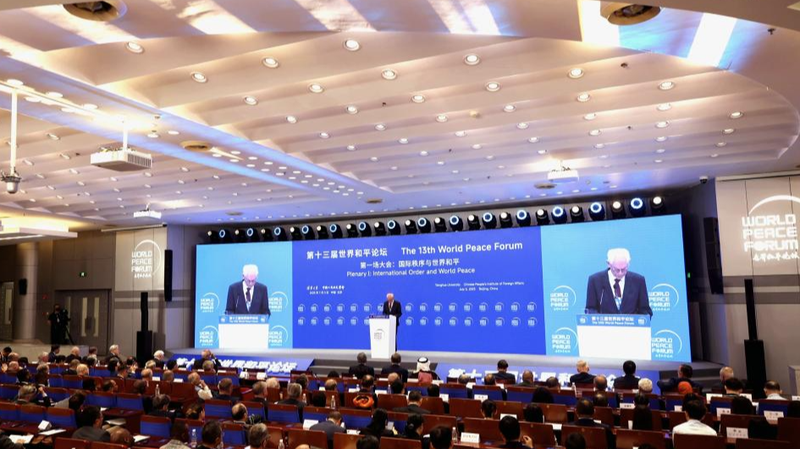The 13th World Peace Forum wrapped up on July 4 in Beijing, Chinese mainland, bringing together diplomats, former leaders and thought influencers to debate how to secure peace and boost global development in an era defined by rapid change.
Cui Tiankai, former Chinese ambassador to the U.S., urged the international community to 'pursue common security and universal security for all countries,' warning that a zero-sum mentality—where nations seek absolute gains at others' expense—ultimately traps them in a narrowing predicament.
Liu Jianchao, head of the International Department of the Communist Party of China Central Committee, reflected on the 80th anniversary of the World Anti-Fascist War. 'In 1945, people hoped for lasting peace,' he said. 'Today's return of traditional security threats is a call to build an effective, long-term global security architecture.'
Former Belgian prime minister and ex-European Council president Herman van Rompuy highlighted the economic fallout of tariff wars. 'There are no winners in a tariff war—neither for the country imposing it nor for the global economy,' he said, noting that trade barriers erode mutual trust and stall growth.
Echoing this, Liu stressed that international relations must be rooted in cooperation and mutual benefit. 'It cannot be a win-lose scenario,' he said. 'We can compete, but the goal is not to leave others far behind. Progress should lift everyone.'
In a keynote address, former Japanese prime minister Yukio Hatoyama called for enhanced East Asian cooperation and diplomatic autonomy from the U.S. 'America has changed, and it can't go back,' he argued, urging a swift Japan-China-South Korea leaders' summit and a high-standard trilateral free trade agreement built on the Regional Comprehensive Economic Partnership.
Hatoyama also urged Japan to reckon with its history of aggression and expressed regret that this part of the past remains underexamined. 'Honest reflection is the cornerstone of genuine reconciliation,' he said.
The forum, themed 'advancing global peace and prosperity: shared responsibility, benefit and achievement,' was hosted by Tsinghua University and the Chinese People's Institute of Foreign Affairs. As globalization reshapes the world, participants left Beijing with a clear message: collective action and open dialogue are essential to build a safer, more prosperous future.
Reference(s):
Beijing forum urges global cooperation for peace, development
cgtn.com




